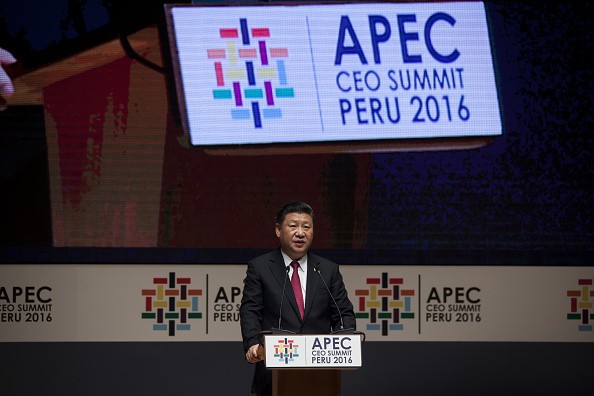China is offering to lead countries of the Asia-Pacific region with an alternative to the trade deal under the U.S.-led Trans-Pacific Partnership (TPP) which has now stalled following the election of Donald Trump whose protectionist policies run counter to Obama's free trade policies.
According to the Financial Times, the TPP could be one of President Barack Obama's biggest policy legacies since it served as the backbone for U.S. leadership role at the annual Asia-Pacific Economic Cooperation (APEC) summit. With Trump's victory, many U.S. allies fear a more belligerent and isolationist America under the new leader.
But China was quick to position itself to fill the gap at this year's APEC summit in Lima, Peru, as President Xi Jinping offered an alternative to other APEC members.
"China will not shut the door to the outside world but will open it even wider," Xi told business leaders on Saturday, Nov. 19.
During one of their chance meetings, Xi also warned Obama about the critical stage that the U.S.-China relationship is currently undergoing.
"We meet at a hinge moment in the China-U.S. relationship," Xi said. "I hope the two sides will work together to focus on cooperation, manage our differences, and make sure there is a smooth transition in the relationship and that it will continue to grow going forward."
APEC officials observed and felt in nearly all meetings, the sudden shift towards China.
"There is a different dynamic around the table. People are hedging their bets," one senior official said.
Japan and other TPP countries are looking for an alternative to the TPP, after Trump threatened that he would pull the U.S. out of the TPP, which has not been ratified by the U.S. Congress.
Malcolm Turnbull, Australia's prime minister, said in an interview with the Financial Times that he would continue to pursue the TPP as he also cautioned about the risk of protectionism.
"Protectionism is not a ladder to get you out of the low-growth trap. It is a shovel to dig it much deeper," Turnbull said.
John Key, New Zealand's prime minister, also warned that if the U.S. leaves the TPP, it would leave the door open to China.
"The TPP was all about the United States showing leadership in the Asia-Pacific region. We like the U.S. being in the region. But if the U.S. is not there that void needs to be filled, and it will be filled by China," Key said.
Obama and other U.S. officials, however, told their regional allies that Trump's election does not mean a complete withdrawal of its interest in the region.
"Don't assume the worst," Obama told a group of Latin American entrepreneurs and activists. "How you campaign is not always how you govern."
Mike Froman, Obama's trade tsar, said: "The U.S. has always been a Pacific power. I think American interests in this region are enduring."
According to Evan Feigenbaum, a former U.S. diplomat now at the University of Chicago's Paulson Institute, China's growing economic influence has made it difficult for Obama to proceed with the TPP. Trump's election and abandoning the TPP would only help accelerate the loss of U.S. influence in the region, he added.
China's bid for regional leadership will be resisted by countries such as India and Japan, Feigenbaum added.
"But either way, the U.S. is the loser because the rules will be set by someone else," Feigenbaum said. "And U.S. economic statecraft in Asia, which has been so essential to Washington's role and leadership there, will fade."



























